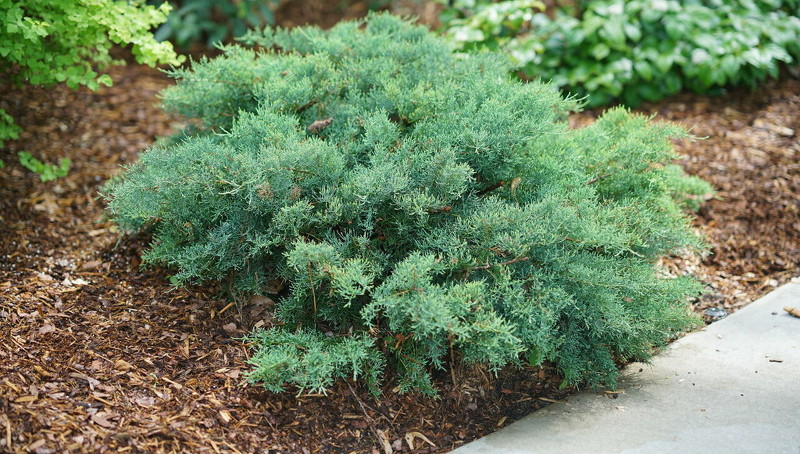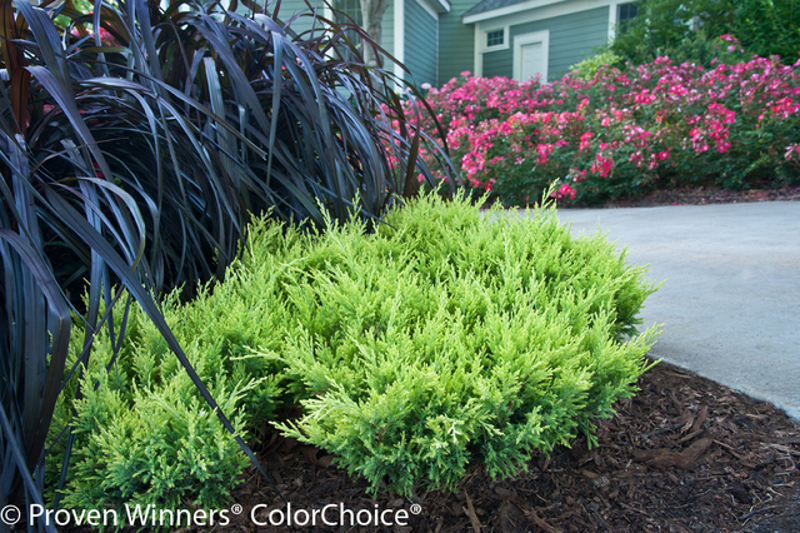Juniper is a popular ornamental evergreen. Varieties can grow from a short 6 inches in height to a soaring height of 130 feet. They’re available in a wide range of colors ranging from green to blue to gold.
It’s important to fertilize your juniper plants during the first few years after planting them to ensure they have the nutrition they need for a long, healthy life in your landscape. Fertilize every six months for the first couple of years.

How to Fertilize Juniper
Have your soil tested every two or three years to determine available nutrient levels. Most state university extension services offer inexpensive soil testing.
Don’t assume that stunted growth or muted colors mean a nutrient deficiency. Junipers are very drought-hardy, and these growth patterns may be a sign of overwatering or excessive rainfall. If it has been a rainy few months, don’t fertilize until a soil test shows a nutrient deficiency. Insect damage or disease can also cause plants to perform poorly.
If you do fertilize, follow the direction on the package and use a slow-release all-purpose fertilizer. Spread fertilizer on the soil surface uniformly around trees from a couple of feet away from the trunk to one foot beyond the foliage perimeter for every five feet in height.
Repot container-grown junipers every two or three years rather than applying fertilizer annually. It’s best to start with fresh soil or potting mix to avoid building up excess fertilizer levels. Too much fertilizer is as harmful as not enough.
Best Time To Fertilize Juniper
The best time to fertilize juniper is in late winter or early spring. Do not fertilize two months before your first predicted autumn frost. New growth may not be mature enough to withstand a frost and may die back.

Best Fertilizer For Juniper
The best time to fertilize juniper is in early spring. Apply a slow-release fertilizer with an NPK ratio close to 16-4-8. After they have become established, fertilization is typically not necessary unless the plant becomes stressed or your soil is nutrient deficient. Use a soil test to determine the nutrient levels available to your juniper.
Juniper Fertilizing Tips
- Carefully follow the directions on the package.
- Don’t fertilize in late summer or fall.
- Use a slow-release fertilizer
- Spread the fertilizer evenly across the root zone
- Wear a face mask when applying powder-based fertilizers.
 |
Author Erica Browne Grivas - Published 11-15-2021 |
